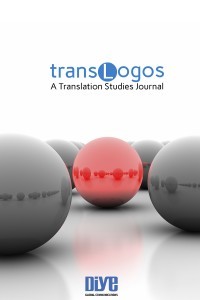The Unconscious of Translation
The Unconscious of Translation
Since the 1980s, a substantial body of literature has emerged exploring the application of psychoanalytic theory in the field of translation. Lawrence Venuti’s article, “The Difference That Translation Makes: The Translator’s Unconscious,” occupies a prominent position within this body of literature for two significant reasons: First, challenging the descriptive paradigm for neglecting the translator’s unconscious while primarily focusing on norms that influence translational behavior, Venuti’s article urges translation scholars to engage in comprehensive descriptive and critical analyses of the translator’s unconscious. Second, unlike most studies in the field, this article provides concrete examples and attempts to demonstrate how such analyses can be conducted. Building upon Venuti’s article as a case study, this paper aims to identify potential methodological challenges in translation criticism practices that employ psychoanalytic theory as a framework and explore how a text-centered approach can help overcome them. To accomplish this objective, this study begins by reviewing the application of psychoanalytic theory in literary criticism, emphasizing the shift in focus from the author to the formal features of the work. It then focuses on the approach that prioritizes the formal features of the work as the primary object of analysis and highlights the methodological implications associated with exploring the unconscious of the text. Following this, the study scrutinizes whether Gideon Toury’s descriptive approach excludes the translator’s unconscious as an object of research, as suggested by Venuti, and if so, explores potential explanations for this exclusion. To assess the effectiveness and limitations of Venuti’s methodology, the study critically analyzes two examples presented by the theorist. Ultimately, the study argues that the focus of translation criticism should be on the unconscious of translation and suggests that the concept offers valuable insights for our methodological inquiries in psychoanalytic approaches to translation criticism.
Keywords:
psychoanalytic theory, psychoanalytical literary criticism, translation criticism, the translator’s unconscious the unconscious of the text,
___
- Arrojo, Rosemary. 2012. “Deconstruction, Psychoanalysis, and the Teaching of Translation.” Translated by Ben Van Wyke. Translation and Interpreting Studies 7 (1): 96–110. doi:10.1075/tis.7.1.06arr.
- Basile, Elena. 2005. “Responding to the Enigmatic Address of the Other: A Psychoanalytical Approach to the Translator’s Labour.” New Voices in Translation Studies 1 (1): 12–30. https://newvoices.arts.chula.ac.th/index.php/en/article/view/40.
- Bass, Alan, trans. 1978. Writing and Difference. By Jacques Derrida. Chicago: University of Chicago Press.
- Berman, Antoine. 1992. The Experience of the Foreign: Culture and Translation in Romantic Germany. Translated by S. Heyvaert. New York: State University of New York Press.
- Caraman-Pașca, Lorelei. 2013. “From the Text-as-Symptom to the Critic-as-Analysand: New Approaches in Psychoanalytic Criticism.” Analele Universităţii Ovidius din Constanţa. Seria Filologie 24 (1): 86–93. https://www.ceeol.com/search/article-detail?id=291091.
- Derrida, Jacques, Willis Domingo, James Hulbert, and Moshe Ron. 1975. “The Purveyor of Truth.” Yale French Studies, no. 52, 31–113. doi:10.2307/2929747.
- Eagleton, Terry. 1996. Literary Theory: An Introduction. Oxford: Blackwell.
- Eco, Umberto. 1994. The Limits of Interpretation. Bloomington: Indiana University Press.
- Ellmann, Maud, ed. 1994. Psychoanalytic Literary Criticism. London: Longman.
- Ellmann, Maud. 2000. “Deconstruction and Psychoanalysis.” In Deconstructions: A User’s Guide, edited by Nicholas Royle, 211–237. London: Palgrave.
- Felman, Shoshana. 1977. “Turning the Screw of Interpretation.” Yale French Studies, no. 55/56, 94–207. doi:10.2307/2930436.
- Fox, Christopher, ed. 1995. Jonathan Swift Gulliver’s Travels. New York: St. Martin’s Press.
- Frota, Maria Paula. 2007. “The Unconscious Inscribed in the Translated Text.” Doletiana: Revista de Traducció, Literatura i Art, no. 1, 1–11. https://ddd.uab.cat/pub/doletiana/19883366n1/19883366n1a12.pdf.
- Holmes, James S. (1972) 2000. “The Name and Nature of Translation Studies.” In The Translation Studies Reader, edited by Lawrence Venuti, 172–185. London: Routledge.
- Muller, John P., and William J. Richardson, eds. 1988. The Purloined Poe: Lacan, Derrida & Psychoanalytic Reading. Baltimore: Johns Hopkins University Press.
- Öner Bulut, Senem. 2018. “Sadakat-Merkezli Çeviri Söylemini Lacancı Psikanaliz Çerçevesinde Yeniden Düşünmek.” [Re-thinking Faithfulness-Centered Translation Discourse through Lacanian Psychoanalysis.] In “1st International Rumeli Symposium [Language, Literature, Translation],” edited by Yakup Yılmaz and Fatih Başpınar. Special Issue, RumeliDE Journal of Language and Literature Studies, no. 4, 266–273. doi:10.29000/rumelide.454277.
- Pisanty, Valentina. 2015. “From the Model Reader to the Limits of Interpretation.” In “Umberto Eco’s Interpretative Semiotics: Interpretation, Encyclopedia, Translation,” edited by Cinzia Bianchi and Clare Vassallo. Special Issue, Semiotica, no. 206, 37–61. doi:10.1515/sem-2015-0014.
- Robinson, Douglas. 1996. Translation and Taboo. DeKalb: Northern Illinois University Press.
- Robinson, Douglas. 2001. Who Translates?: Translator Subjectivities Beyond Reason. New York: State University of New York Press.
- Toury, Gideon. 1982. “A Rationale for Descriptive Translation Studies.” Dispositio 7 (19/21): 23–39. https://www.jstor.org/stable/41491224.
- Toury, Gideon. 2012. Descriptive Translation Studies — and Beyond. Amsterdam: John Benjamins.
- Tristán, Meritxell Serrano. 2014. “Psychoanalysis and Translation: A Literature Review.” Letras, no. 56, 55–88. doi:10.15359/rl.2-56.3.
- Venuti, Lawrence. 2013. “The Difference That Translation Makes: The Translator’s Unconscious.” In Translation Changes Everything: Theory and Practice, 32–56. London: Routledge.
- Wright, Elizabeth. 2003. Psychoanalytic Criticism: Theory in Practice. London: Routledge.
- Yayın Aralığı: Yılda 2 Sayı
- Başlangıç: 2018
- Yayıncı: Diye Yayınları
